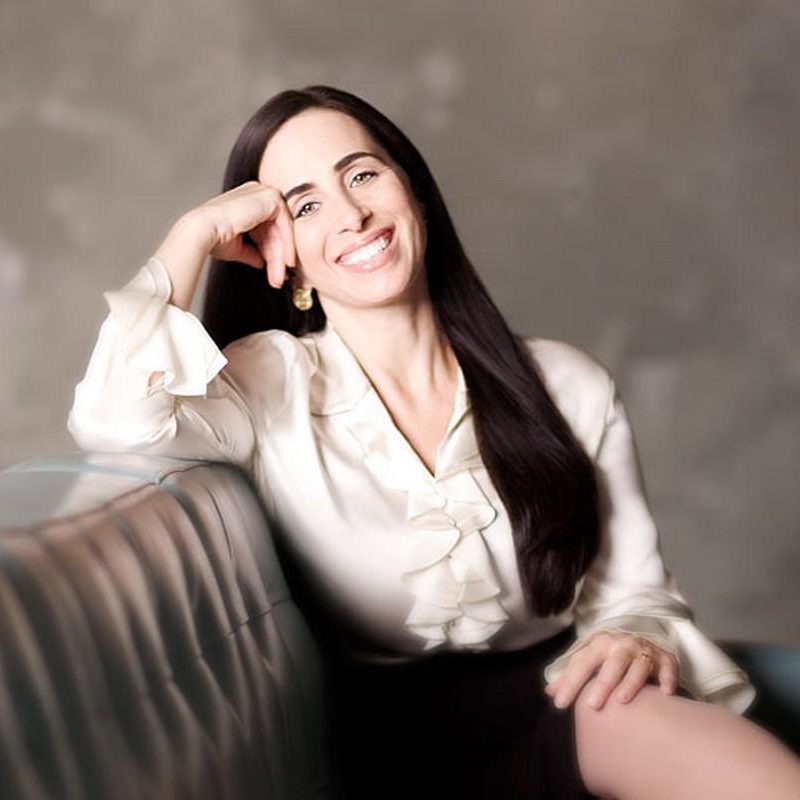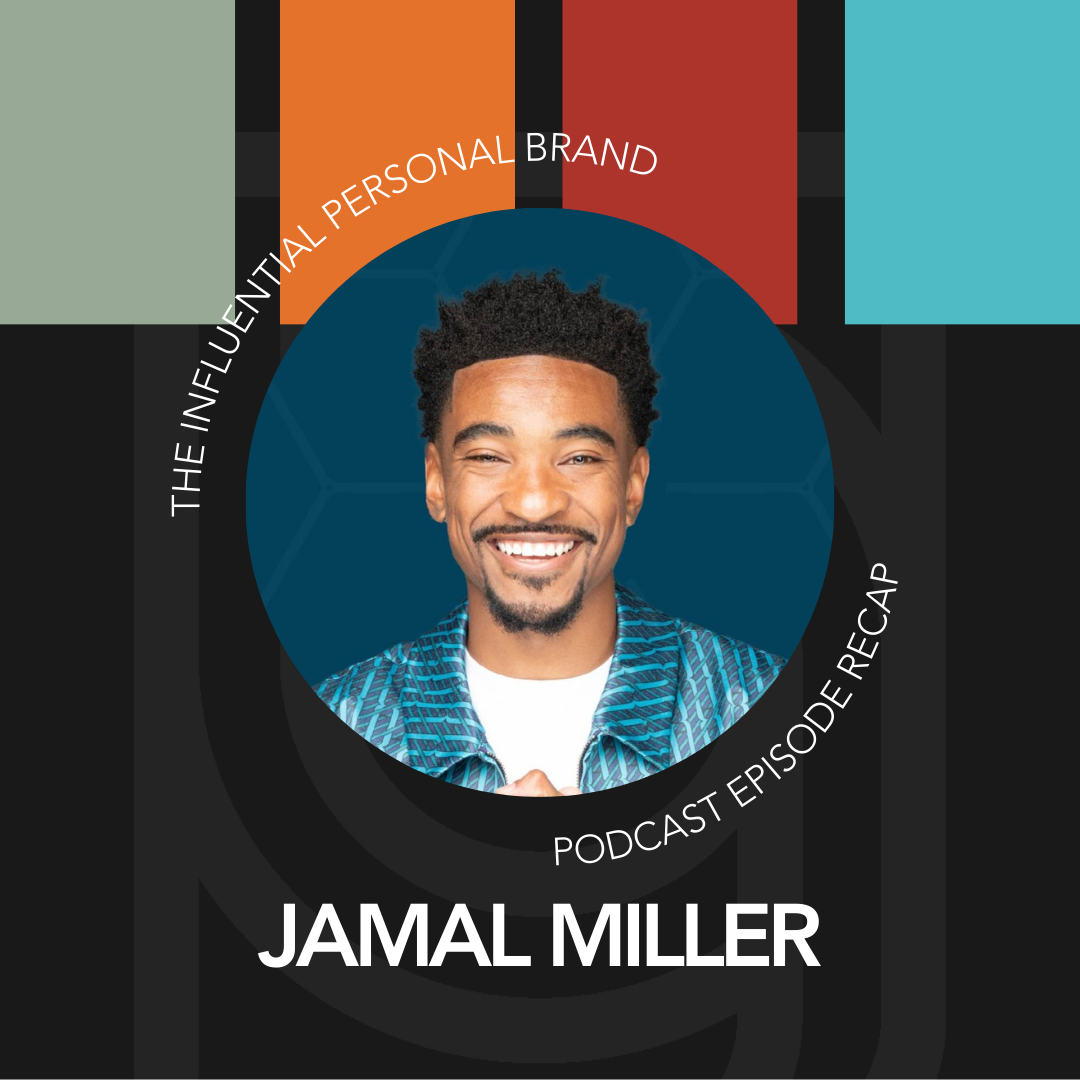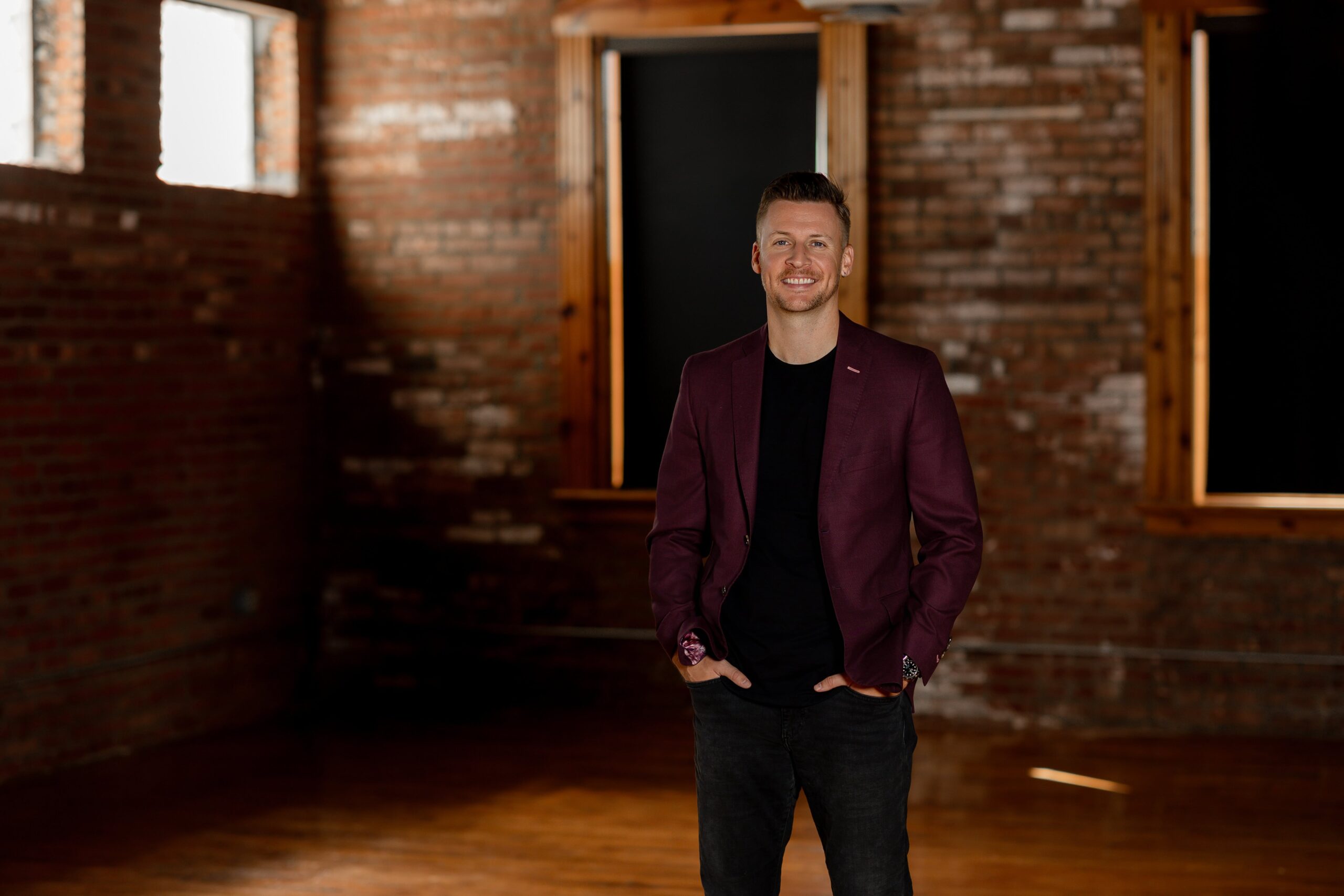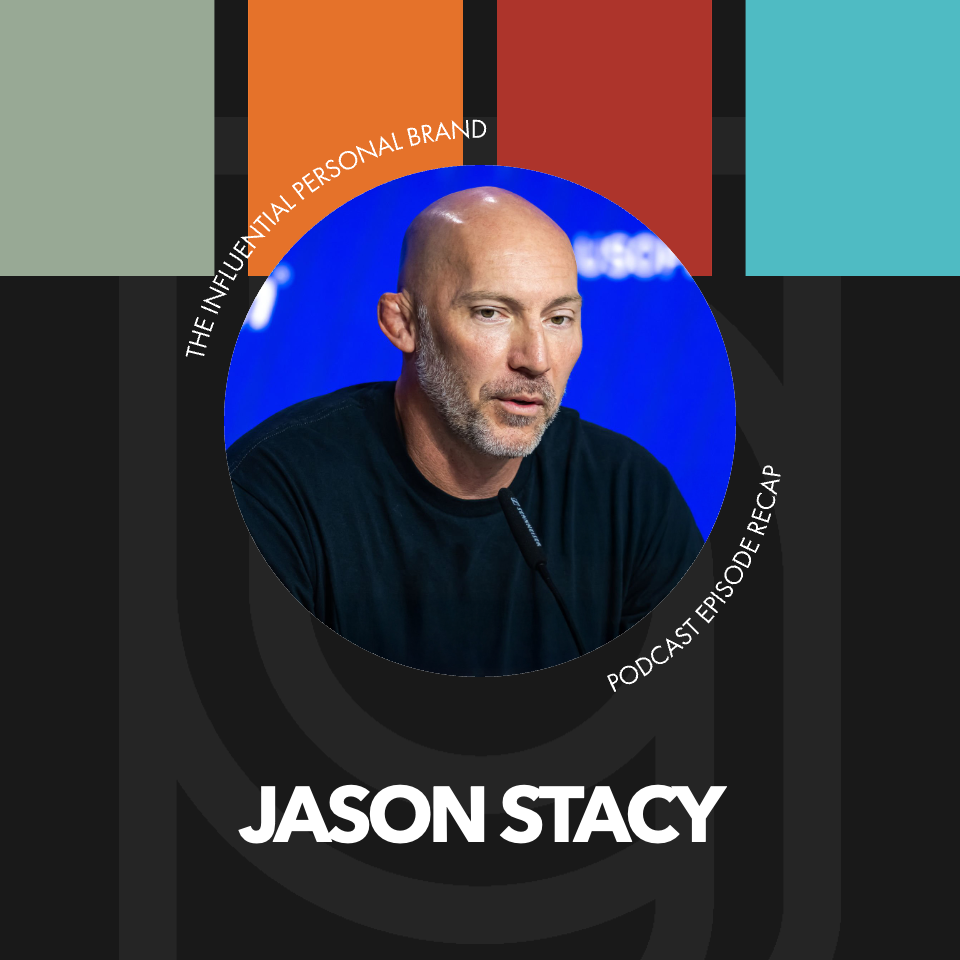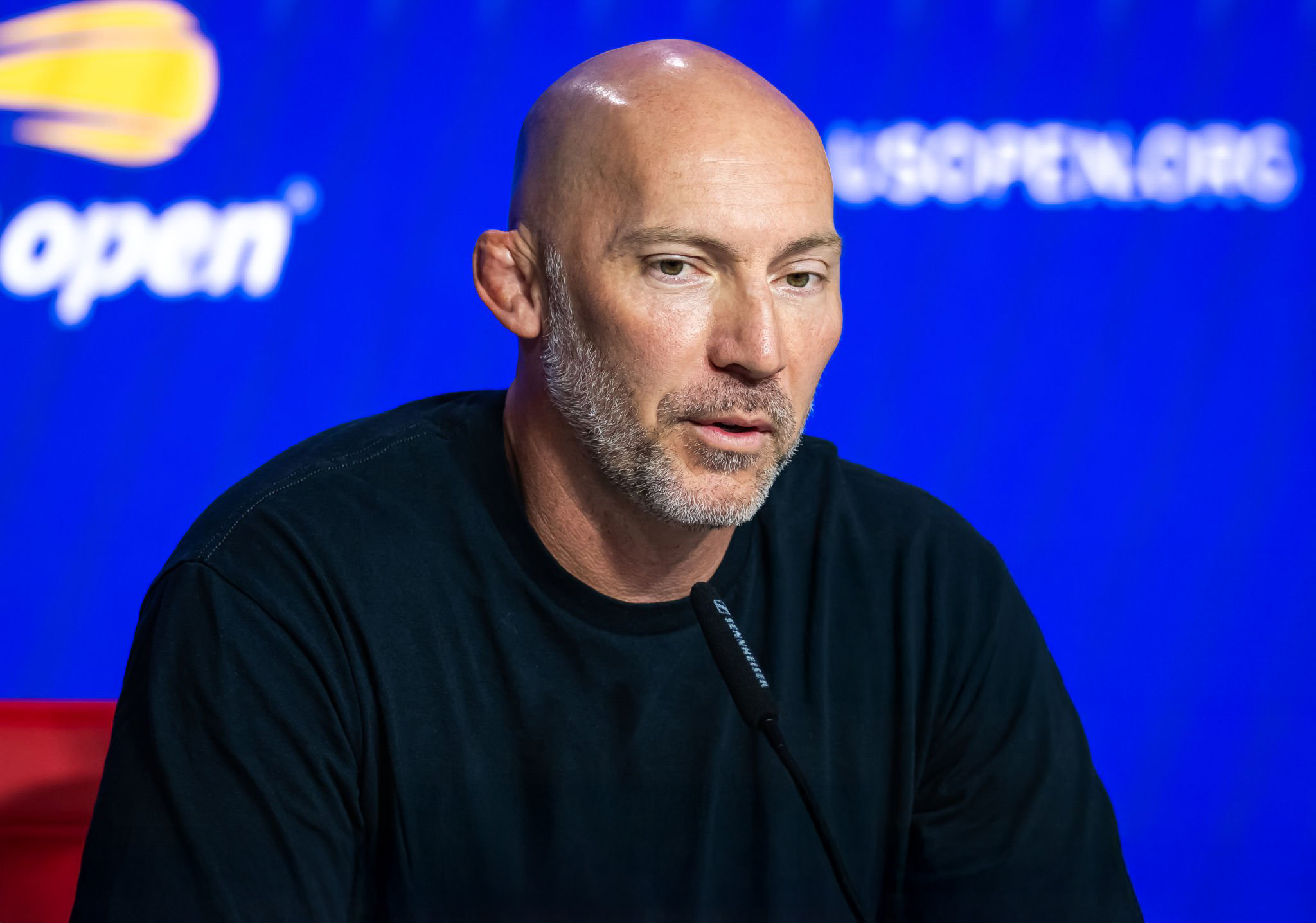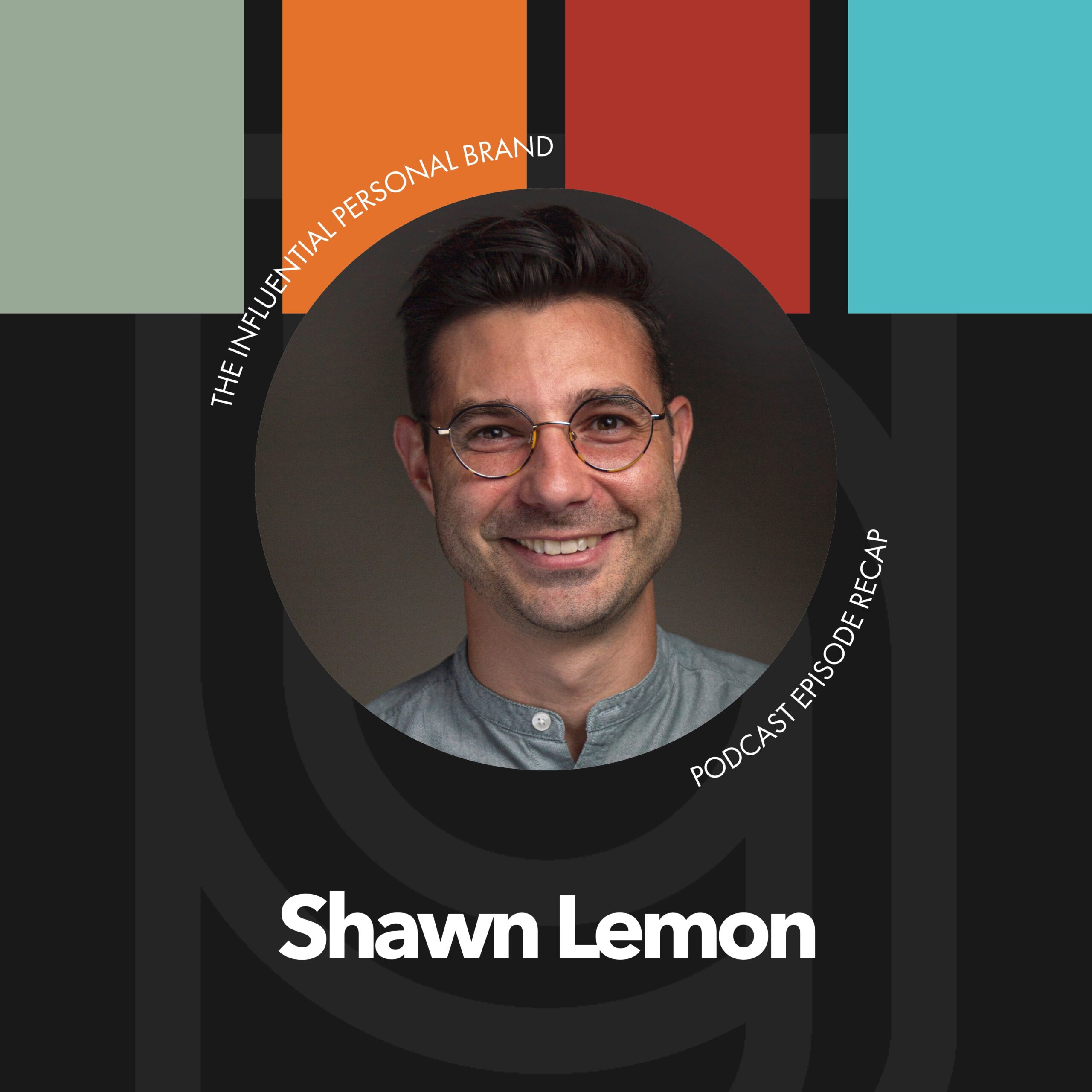RV: (00:06) Hey, brand builder, Rory Vaden here. Thank you so much for tuning in to listen to this interview, we are so excited to bring you this information and wanted to let you know that, Hey, there’s no sales pitch coming. From anything that we do with this is all our value add to you and the community. However, if you are somebody who is looking for specific strategies on how to build and monetize your personal brand, we would love to talk to you and we offer a free call to everyone that’s interested in getting to know us and is willing to give us a chance to get to know them and share a little bit about what we do. So if you’re interested in taking us up on a free strategy call, you can do that at brand builders, group.com/summit. Call brand builders, group.com/summit. Call. Hope to talk to you soon on with the show. RV: (01:03) I’m so excited to introduce you to one of the coolest people ever here. Juliet funds a story just as a first of all, I’ve known her for years. I met her in the national speakers association years ago when I was this little runt kid, she’s an amazing performer. She has spoken at the global leadership summit, which is like the largest speaking event in the world multiple times. She’s the CEO of a very successful company. And she works with a lot of the fortune 500. So her expertise is around something called white space, which you’re gonna, you’re gonna hear about and we’re going to talk about it and the company is white space at work. But you’re gonna tell us a little bit about her story. So one thing to know, she just got I don’t know how to say this. RV: (01:50) A very awesome, awesome book deal with Harper Collins, juicy, juicy. Yeah. So it’s coming out. Yeah. So we’ll maybe talk a little bit about that. The other thing is she has the last couple years, or several times in her career, she has built her business while living abroad with her family. And she has lived that dream of being able to speak and write and let you know, travel with her family and see the world. So she’s just incredible and had to bring her on. And so Juliet it’s, it’s good to chat with you. I have been called different things, but JF: (02:26) The coolest, so infrequently one of them and I’ve always wanted to be cool. So I’m really, I’m super excited about this one. RV: (02:32) Well, yeah, so I mean, you are cool. I mean, you do cool stuff. You’re your content is fantastic. I think that’s super relevant. I want to, I do want to hear about that, but I, I want to start by your story about how you got into the industry. I think a lot of, a lot of people listening, you know, they want to be a speaker. They want to speak at big events. They want to be an author. They want to travel the world. They want to maybe work with the fortune 500. Some of our clients are more on that, like kind of corporate track, some are more entrepreneurial, but you’ve been able to do so many of those things. And can you just like, give us a little bit of behind the scenes of how did you get started and then how did you end up there and then like, how do you see the world now in terms of your personal brand? JF: (03:23) Yeah, so I started, I really started my speaking career when I decided to be a theater student because the performance elements that I learned when I went to Northwestern and thought that I was going to spend my life with pinner and Shakespeare and Shaw have actually been the secret sauce of everything else that I did in my career. So I tell people constantly whatever you’re about to do to build your career in any aspect, go take acting and theater and improv and voice lessons first, because there’s something about creating a performer self that then follows you around and amplifies everything else that you do for your entire career. And I was just lucky that I accidentally ended up thinking I wanted to be in theater and learning all of those things in college. And, and I did it for a little while. It wasn’t a right match for me, but then those skills sort of became part of my kit bag that I took with me everywhere else. JF: (04:16) And I was really lost in my twenties. I had no idea what I wanted to do. I wasn’t one of those people that found it early, I did catering. I was what’s called a food stylist, which is when you take a little tiny tweezer and you make food beautiful for photo shoots. I’ve always been really into that. And along the way, I started volunteering because I had an eating disorder in my twenties and I spoke on some panels. So, sorry, where’s that off? It’s not even going off now. So sorry. I spoke on some panels. People asked me if I would speak on panels for eating disorders and it was just me with three or four other people, personal testimonial. How did you get better? What did it look like? I was very young and something happened when I was on those panels at those little folding chairs and folding tables at high schools and colleges, where I realized that people leaned in when I was talking in a way that seemed different than other people. JF: (05:18) And it seemed like I enjoyed putting together the arc of thought the stories connecting with the audience. There was something there and it was different from acting because it was getting to be myself and it wasn’t being another person. It wasn’t having to pretend that I was another person. It was me, but still in front of an audience, there was something kind of magical. I just got a little tiny goosebumps of just that feeling of I get to be me, but I still get to perform. And so speaking became an Avenue for that. Now I put it back aside for years and years and years, and I was still doing some volunteer work. I did some talks in colleges and high schools, and that was the beginning of my paid career, but I was working my job as sorry, when you first RV: (05:59) Is this, like how many people are in a room here? Like when you’re first starting. I mean, I have to assume, you know, like some of the events you speak at now or 7,000 people in an arena, and you’re like up there doing your performance when you started, I’m guessing it was quite a bit different than that. 12 people JF: (06:19) For $750. I remember this one eating disorder talk. When I first started getting booked to be paid, to go up and talk about body image and women and media. I was writing content and I was expanding beyond personal testimonial and this little kind of funky high school way up in the mountains in Colorado that paid me $750. Cause a friend of mine, Scott Greenberg, who’s another speaker. We were volunteering at the same place. And he said, come up and got me my first gig. And that was, that was that one. And then I very quickly evolved out of youth and education evolved out of the topic of food, started talking about media, started talking about over-scheduling of teenagers, which was the crossover topic because these kids were so busy, they were busy, busy, busy, busy, busy, and Hey, their parents were busy and their administrators were busy and everybody was busy. And that became the very, very early seeds of whitespace was looking at why are we so overloaded? Why do we keep moving this way? Why don’t we have time to think and pause and breathe and appreciate. And that really quickly took over everything, all the food related body related image stuff dropped completely away. And that became my topic, which became the seeds of white space. And then, yeah, RV: (07:33) That Peter’s early, like the early, like you cry. That was pretty much like your first pivot became the foundation, which you’ve pretty much stuck with of just like, over-scheduling just that concept of being overloaded, you know, just busy over-scheduled. JF: (07:50) But I tell speakers any, and people creating a brand. It actually took me years to get to the point where you’re describing this as a fast pivot. So when people come to me and they say, I don’t know my topic yet. I say, speak on everything in the sun for five years and don’t even worry about it. Don’t even worry about finding the lane cause you might want to be in the lane for a while. Don’t don’t marry the first guy, a kiss, you know, just that get, stay in their play, try different topics, commit to something and then know that it’s going to be iterative and give yourself permission to tell everybody you’re one thing. And then be another thing two days later, this is just so important. I think. RV: (08:29) Interesting. so then over the course of time, like why do you think like a lot of speakers kind of come and go and I’m using speakers just cause that’s kind of the way that we kind of interfaced and met. Do you, do you see yourself as more of a speaker, a consultant, a trainer like an entrepreneur? Like how has that evolved? Cause it does sound like you started as a speaker. JF: (08:57) Yeah. The first, the first 15 years was a speaker. Now the last 10 years has been as an entrepreneur. And I actually had sort of a victory of sorts last year where I spent 14 months in a row where I made no money from speaking. And for me, that victory is that I I’m ready. It’s been 20 years. I love speaking. I’m enjoying different things. Now I’m enjoying writing. I’m enjoying running a company I’m enjoying figuring out where our philanthropic dreams are going to go. And so I feel like I don’t need so much of that anymore. And it was a, it was just a victory in terms of business to be able to sustain ourselves 14 months, no speaking, because speaking is a very lucrative part of our revenue model. And it’s also the most lucrative part of our lead generation model for the things that we sell as a company. So you pull out speaking, you realize, Oh my gosh, all other lead sources suck compared to speaking because there’s something about being up there. The people that you meet are already enthralled with what you’re talking about by the time you even move into a conversation of, can we help you? So you take all of that out for over a year. It’s way more lost than just the revenue loss. RV: (10:10) Yeah. I mean, that’s a, I guess those are the blessings and the curses of a great have a great have a great speaking business. And so so let’s talk about that a little bit because you, you, so it’s interesting that you did that 14 months ago, like for 14 months, a couple of years ago, and now in a COVID world, everybody’s doing that JF: (10:35) Speaking disappeared, RV: (10:37) You know, as a model, it kind of disappeared and you were already traveling and I know, you know, travel, you know, we’ve talked about this. This is kind of a sensitive thing. JF: (10:47) Yeah. Let me actually, I’m just before you get to travel, let me just, I feel like we left our well, we left our friends a little bit disjointed in the middle of a story because we’re having so much fun jumping around, but let me just finish. So youth and education led to talking on overload, which led to about 15 years, speaking on this concept called white space. We can talk more about that in a minute. And then at some point a client said, can you scale this? And we built a company with models that could be taught and digitized and shared, and that’s what we do now. So what allowed me to take that 14 month period was that we sell a lot of other things that are not now involving me speaking for a check. And so that’s just to finish a little bit of that story before we flip to travel, which is so interesting. I just wanted to let them understand the last chapters there. RV: (11:39) No, actually I’m glad that I’m glad that you closed close that loop cause that’s really important. And that’s, that’s I think that’s a rare position that a lot of personal brands never get to the point where they transitioned from a personal brand to a real business where they, they are scaling how many people are, are in like the whole white space at work team. JF: (11:58) It’s small, we’re tiny boutique. We have 11 people including our part time people. And you know, just so you know, it’s still a struggle every day to separate the brand from me. I have branding conversations, people all the time. You’ve been one of the people that I’ve come to for help in a lot of areas that, that there’s something about the looping in of my personality with the brand personally, we’ve tried pulling pictures off the website. We’ve tried pushing the content instead of pushing the person. But it’s really tough when you grow a tree, it’s like those two trees, you see that grow up on a, on a side of a wall in Cuba or Guatemala or something where they’re just, they grew into each other and it’s very hard to unwind them. I definitely have not cracked that secret sauce yet of extricating myself. RV: (12:49) Yeah. Although you have been able to create the lifestyle that we were talking about here, which is where, you know, you’ve lived the dream for years at a time of being able to take your kids and your family and go on the road. You’ve got three kids, right? JF: (13:07) I have three boys, 10, 12, and 14. Now we left on this trip that you’re talking about two years ago. Next week on our anniversary, August 28th is going to be two years on the road. And it has been a dreamy combination of the world of white space. It’s the ultimate white space application really? And it came out of, I was having do you know, David Covey, but one of the Covey brothers RV: (13:38) I’ve met David Covey. I haven’t, I actually he’s been at my he’s been to my house one time. The only time I met him. JF: (13:44) So I had, I was having Indian food with David Covey and salt Lake city about four years ago. And he told me that he lived in different countries with his children when they were growing up. But, but he did a year at a time and he ran his businesses and lived in different countries. And it just fascinated me and it captured my attention and it percolated and percolated and percolated. And then we met these people that were doing something called a world schooling, which had a name in which had an association. And they had conferences about people who had decided that travel was a better education for their children than school. And we left, it took me about four months to convince my husband. And then one day he left a map. I get up about five 36. He gets up around nine and stays up till a billion o’clock in the morning. JF: (14:32) So we have very different schedules and he left a little map in the shape of a heart on my desk. One morning for my 6:00 AM walk in and said, let’s go. And he finally went over the line and decided, and then we left and we went to, we stayed domestic for the first months only because of speaking. I would have been international immediately, but I couldn’t be far away. Cause I was flying away from the trip to go finish the gigs that had already been booked. And then once that concluded and we were able to say, no more gigs after a certain date, then we went international. We’ve been in Europe, Asia, Bali, Thailand. And we are now in New Zealand where we were supposed to be for two months before going to China. And then obviously didn’t go to China. And then we waited and waited. And now we’ve been here six months and we just applied for another six months. Cause honestly we don’t really know where to go. So COVID has stopped the trip where we’re very dedicated to one more location on our way home. So that the story is not that we went on this beautiful trip and then COVID killed it. And we’d like there to be one more different final chapter to go. We’re thinking about going back to Hawaii, which is where we started at the very end RV: (15:48) And, and you’ve been able to do that. So, so the business you mind sharing with us a little bit, how have you operated? JF: (15:54) No, I’m trans transparent to the point of you have to stop me and then I get myself in trouble. So that’s not, that’s not hard to share. We have not sold a house or gone on savings or anything for any portion of this trip. We have earned as we’ve traveled with the one exception that I have quite a lot of miles. So miles have helped for sure with the international, but I work, I live on a laptop. I go into coffee houses all over the world. And in Bali I watched the ducks and in, you know Croatia, I was on my laptop in a hotel above these fighting Russian tourists. Every time I would go work and I pull out the laptop and I, I work in the time zones, kick my butt. And in Bali, I’m up till two in the morning and here I’m up at four 30 and you get used to it and we have a remote team. So we sell, we sell an online product now and actually COVID inversed what you just said, which is that I went back to live presenting because of COVID because so many people wanted immediate help with work from home efficiency, which is a subset of our work. So I actually did more presentations in the last four months than I did in the previous two years. RV: (17:13) But they’ve all been virtual. Yeah. JF: (17:14) Correct? Yes, yes, yes. Yeah. I’m just talking about speaking for money came back after. Yeah. RV: (17:22) Well, and I think that’s it. I think that’s really interesting because you know, if you hang around the speaker crowd, you know, there’s a lot of like, Oh my gosh, you know, all the gigs are postponing and et cetera, et cetera. And it’s like at the same time, every company in America is having meetings every single day that are virtual and they need outside voices. And it’s like, in some ways there’s more opportunity than ever. No one has to rent a ballroom, they just need a link. And like you can be in front of their entire company from anywhere in the world. Like you’re, you’re stuck in quote unquote stuck in New Zealand. JF: (17:58) Yeah. It’s a bad word for wouldn’t being here, but yes. RV: (18:01) Yeah. well I think that’s, I think that’s, that’s, that’s amazing. Now you also have this book deal. How did the book deal come about? Cause that happened over that same time period, right? JF: (18:14) The book deal had been so that my, my, the comic secret of my professional career is that everybody already thinks I’ve written a book because of where I am in the circuit. So if you’re on stage between you and Marcus Buckingham and then Laszlo Bock comes up, there’s no way that that lady in the middle hasn’t written a book. So everybody always thinks that this is my second or third book. So it’s just a funny thing, but it’s not because I had a lot of trouble writing a book and I had trouble getting quiet enough. I’m super interpersonal. I’m great graded all the parts of business that are interpersonal and the lonely quiet work of the chair. And the laptop is very hard for me, but I also was doing other things and I had three children in six years and I was building this business and I made a decision not to be a mom. JF: (19:01) Who’d never saw my kids. And there was a lot of other things. And so the book just kept getting pushed, but there was an agent who adored my work and tracked me through ups and downs of that process. And he became my agent and he’s the best agent in the universe. And when we wrote the proposal, the time was right and we had six offers and it was wonderful. It was a wonderful experience. Wow. And I got the offer. I got the final offer from Harper on a porch in Gatlinburg where we’re looking out at these kinds of Misty. I think I want to say smokey mountains, but I can’t remember if that’s Gatlinburg. My God, it was, I have locked in memory the moment that we got that phone call and, and it’s been a really wonderful experience. I’m preparing for the ups and downs of an actual book launch, especially post COVID. We have a lot of things we’re going through, but it’s been wonderful and I’ve really enjoyed the writing more than I would have guessed. RV: (20:02) I love that story. So, I mean, and you got, I mean, you’re technically a first time author, but you’re not, they’re not treating you like a first time author and that’s something I think that’s good for people to know is like, if for whatever reason you don’t write the book, you don’t write the book, then it’s like, Hey, all of your hard work will catch up with you at some point. JF: (20:22) Yeah. Oh, I’m so glad you brought that up. Cause I, if I could have had someone I trusted relieve the pressure the 10, 15 years in NSA of write the book, write the book, write the book, write the book. If I had written the book at any of those times, it wouldn’t have been this book and it wouldn’t have been as fully cooked and it wouldn’t have been as perfect as it is now to write this book. And so I’m glad I didn’t write the book. I’m glad I didn’t use my content and my brand and the name Widespace on a book that was so much more juvenile than this book will be. Cause I couldn’t have done it twice. And so that I wish that I could have taken that out of my psychological equation. Maybe I can do it for one other person. RV: (21:05) Yeah. Well, and it’s like, you can do it both. Like you can, you can do it both ways. You can be successful either way. Like, you know, some people say, Hey, the book changed my life and here you’re going, look, I was able to do it without it. And now I can write the book and you know, it was like, the book is going to change your life. Again, and it’s like a whole, you know, but it’s not, it’s not a, it’s not as a straightforward formula that you must follow one way or the other. Right. so I love that. Okay. So I want to, I want to spend a few minutes actually talking about this. So, you know your story, I wanted everyone to hear your story about kind of the sequence of how things have gone and, and, and what that’s looked like. JF: (21:50) What is it, RV: (21:50) White space? Can we talk about white space for a second and specifically what is white space? Why does it matter? And then what I’d like to do is be able to get into the, you know, a conversation of how does that apply to personal brands, which is something that even though you don’t traditionally teach that you are, you are one and you know that, you know, you haven’t been and you know, that space really well. So I’d, I’d love to get like a, a once and only Juliet Funt white space for personal brands in the only place you could get it right here in influential personal brand podcast. JF: (22:26) Cause it’s never been done. So here we go. So white space is we define white space as a strategic pause taken between activities. It’s, it’s the open fluid, flexible unscheduled time that used to be in between things in life and now has gotten filled by busy-ness and cell phones and tech addiction and all the things that we cram in. And one way to think about it is if you imagine the periodic table of the elements, and if you imagine what would happen, if one of the elements just fell out and all of a sudden there was no salt or all of a sudden there was no nitrogen systems would collapse. And we believe that this is the case in a sense with white space, that there is this element that is supposed to be present, weaving in and out of our days for breath, recuperation, stepping back, all sorts of things that this element of white space is supposed to give us permission to have that have now just gone away. And the mission of the book is to reinstate that into the lives of working people everywhere. And that’s my mission as well. RV: (23:39) So it’s like going extinct. It’s this thing that’s sort of disappearing from, from the earth because there’s always JF: (23:46) Something to do. So if you have a second and you can think of it really, really tactically, the name white space came from a couple of different places, but the main place came from coaching executives 20 years ago. And we would look at there then paper day planners and we would look for white is the white, just Penn and Penn and Penn and Penn and Penn. And where is the white space here in this day where somebody could think strategize, prepare for a call, step back, reflect on their own behavior. Where, where is the white deer executives? And that’s where the white spaces coming from. The white space is literally on the calendar came from. So we don’t have it because now when there is a pause, our nervous systems are so wired. Usually it’s just the phone is the simplest first insertion. But if you were to, let’s say you were to finish this podcast and you look at your calendar and you realize that you have seven minutes before the next thing, the chances of you leaving any of those minutes open would be very rare. JF: (24:50) You probably get up and get a cup of coffee and do those things, but then you’d come back and you’d realize you had 40 minutes left. You would probably check your email or check a social feed or do something tactical or manual like unplugged desk or pack a bag or get ready for the, the chances of you leaving even a minute where you just looked up and went, Hmm, how’s my life. How’s my work. How am I? Am I okay? It’s been a lot lately. The chances that you would use that time to leave it open and see what happens is very, very rare. And that’s what we want to change. And for personal brands and entrepreneurs, work is never over the, to do list is never over. So if you have five minutes between calls, you have to jam something in there and get one more thing done and check off one more box. JF: (25:42) And the chances that you would use that time to remain open are light, even when it furthers your business goal. So let’s say you’re an athlete and you have a call in six minutes, that’s going to be with a promoter. Who’s going to do something fantastic for your career. Most people would work right up to a minute before, especially if they’re very experienced salespeople or presenters, they just swing around in their Herman Miller and dial right in. They’re fine. But what if you had white space before that call for five minutes and you sat there and thought, who is this person? How were they last time? What were they into? How do I want to come off? What is it? What could this really mean to me? And you really used thinking as a business tool to change the outcome of what came next, everything would be magically and completely different. And so that is part of the goal. It’s not only personal white space or reflective white space or recuperative white space. It’s also a tactical use of white space to further the thing that comes next. RV: (26:48) Yeah. So it’s, it’s not necessarily, you know, I saw one of your videos one time that said like white spaces, not meditation. JF: (26:55) Yeah. Not meditation, mindfulness nine. My wandering, we go through all the things that it’s not, RV: (27:01) But you’re saying it’s like for entrepreneur or a personal brand, that it, it actually that minute to pause, to think, even though it feels like slowing down, you’re saying that that actually could enhance the overall business versus just doing constantly JF: (27:17) Must enhance it. How can you know where you’re heading? Would it be a tragedy if you were on full steam for seven years heading in a direction and you never even took some time to say, is this the right direction that I’m heading full steam for seven years? Or is this the right way? I want my data flow or how, who am I bringing to this business? How am I treating the people that work with me? And for me, these are contemplative questions that great leaders ask, but they must have white space to do that. RV: (27:48) Is there a, is there a amount or a percentage, right. You know, and I, I think this is so relevant, personal, personal brand, right? It’s like, and then onto any entrepreneur, let us, like, you could be shooting a video, writing a blog, preparing a presentation, building a funnel, like answering your emails, writing a book, like customer service. JF: (28:13) And that could all be like within a couple hours. I know. Is there like a proportion of RV: (28:18) Time? Like, how do I know what’s the right? Like, how do I actually practice? You know? JF: (28:26) Yes. And that’s that question is the perfect litmus test of our entire personality. Isn’t it? Like, you want to know, you want to know the formula, right? So that’s yes. RV: (28:38) Block it on my digital calendar and you know how you could color code it. I’m going to color code at white in honor. JF: (28:44) Yeah. Juliette actual white space. So the people that like that more regimented approach, you can just start with two minutes, a couple of times a day, it’ll feel like the longest two minutes of your entire life, just begin to experience stopping the machine and restarting the machine. So for those of us that are more fluid and less structured, it’s just about an interstitial pausing. 10 seconds here. A minute there, 30 seconds here, this incremental and interstitial use of white space is extremely powerful. It’s also the majority of the way that I personally use this tool as an overbusy Energizer bunny, kind of a person. So that interstitial use can be amazingly. It can be you’re finishing work and your kid needs you. And you say just a minute and you spend 30 seconds transitioning from business hat to daddy hat. And that’s all it is now longer stretches of white space, 10 minutes, 15 minutes, 30 minutes with a legal pad, deeper white space away from your technology to think deeply about your business or brainstorm or vision. Beautiful, beautiful, and important. But the life saving element of white space is the interstitial sip. That’s what makes us learn that mechanism again, of stop the machine, start the machine. That’s all we want to do is step off for a period of time. RV: (30:20) Yeah. I mean, I liked that idea of a sip. Just like a sip of water, like water. I feel like there’s a fear that is underneath this. That’s driving that leg. If I’m not maximizing every single second, like it’s all gonna come crashing down. JF: (30:37) Yep. And it is come. I mean, that philosophy is crashing down all around us. Now five months post the novel coronavirus because teams are now working 12 to 14 hours a day because they can. So when the office is in your bedroom, there’s no off switch and there wasn’t an off switch before. So actually one way of thinking about it is all of our corporate pals have now joined the entrepreneurial pain that we’ve all lived with for a very long time, which is work can be all the time where can be all the time. And there’s mental health challenges and focus, challenges and creativity, challenges, and sustainability challenges to that. The corporate people are starting to see it. It’s harder for us to see it because we have that bravado of I’m an entrepreneur. I just have to keep going. RV: (31:22) And if you’re a chronic like, you know, checklist or the idea is not that you have to retreat, you know, you’re not retreating into meditation. It’s just thinking as a business tool about going like, Hey, before I dive into my email, like, let me just process what’s going on? Where am I at? What’s the next most, you know, best use of my time. And JF: (31:48) It can be. So the whole purpose of white space is that it is an open container. Now your saying one possible application of it, thoughtfulness as a business tool, another possible application, I’ll just rifle through a whole bunch of them is daydreaming, which has been proven to lead us to wonderful creative places, appreciation time to combat some of the pain and challenge by looking at what’s wonderful recuperation, literally just doing nothing, letting your body come back during that a little bit of open recuperate. It better be, it better be, you know, we have, we have the dopamine from our devices. We have caffeine, we have energy. We have passion. We have a lot of different ways that we can goose up adrenaline to keep going, but the price paid at some point will arrive for never turning it off. And the, you know, the deep white space that I, one place I’m really, really good at deep white space, even though I tend to take my sips incrementally, is that on those vacations, when I take a vacation, the cell phone is in the bottom of the suitcase. JF: (33:01) It is dead and it is off and there is no email. And it’s the only way that I can come back after the kind of exertion I put into my work month. So I’m a big advocate of when you do disconnect, really disconnect. I think a vacation kind of like driving from New York to LA and you want to get to a different destination, but every time you touch base with work, even once in the morning, you have to drive back to New York. So you never get farther and farther and farther away to have perspective and look back. And that’s why people who do take disconnected vacations, even if they have to be staycations, that’s why they do come back with innovations for the business and great new creative ideas. Cause they’ve gone away. You can’t really go away. If you go back for a visit every 12 hours. RV: (33:52) Fascinating, fascinating. And I could, that would totally apply to any creative work, writing a book. You know, it just, just makes sense to like, to be away from all the busy-ness to just kind of sit and think, or, you know, recoup or daydream JF: (34:11) And writing the book has been a great example. If I take these book day retreats where I’ll do 12 hours in a shot on and off with my white space breaks, but, but a lot for me, and it is so tempting to spend all of the working minutes of that period, working to spend all the working minutes of that period in a document editing, writing on book related phone calls, interviews. But if I’m willing to really just close it all down and think about what do I want to make sure that I don’t not say in this book and what do I want to really make sure that what part of my heart and my willing to be a little shockingly authentic with so that in a business book, you’re crossing a line to realness in a way that people aren’t anticipating those kinds of thoughts can only happen in white space. And they can only happen when you create separation between you and your product. And that can’t happen while you’re in it. RV: (35:11) I love that. I love that. So Juliet, where, where do people go to connect with you and stay plugged in and, you know, be on the list to be notified when the book out and all that JF: (35:24) Whitespace@Work.Com we would love to hear from you. And you’re welcome to reach me personally, a juliet@whitespaceatwork.com. RV: (35:31) Love that. So we’ll link. We will link that up. We’ll keep you all posted. When the book comes out, clearly you can see the application. Y’all I know you’re listening going. Yes. I need white space in my life. Well, we wish you and your family the best be safe while you’re out there traveling and then have your one big adventure Juliet, and then hopefully we’ll get to see you in person soon.

